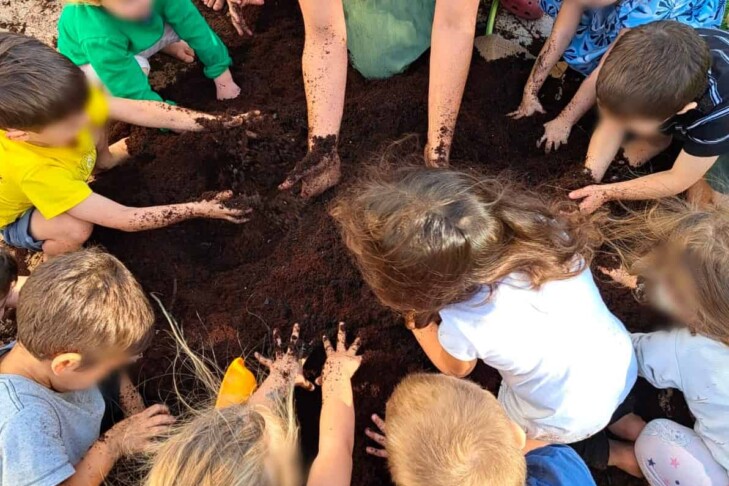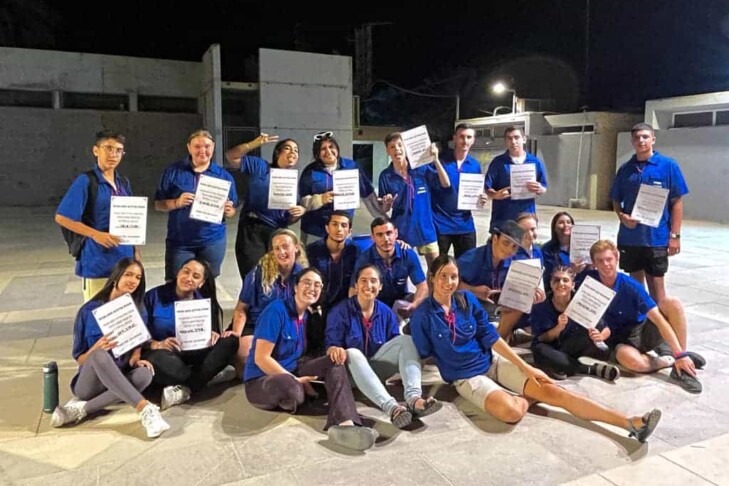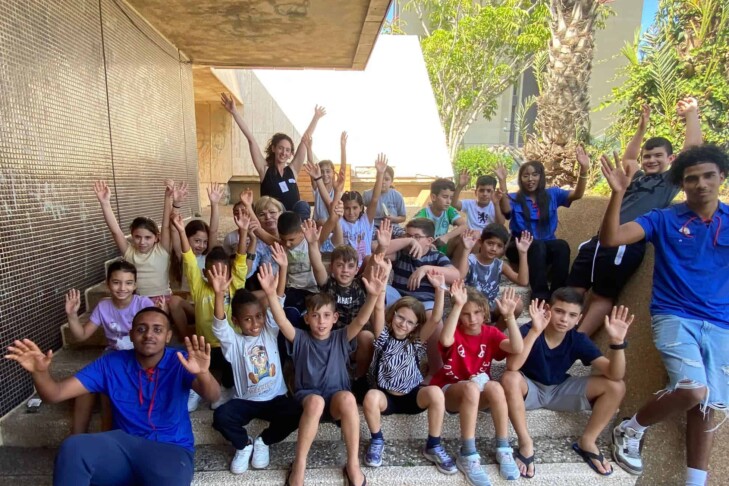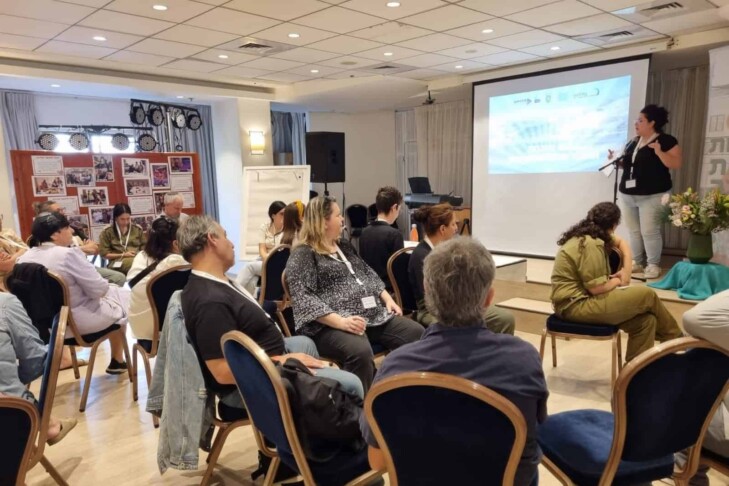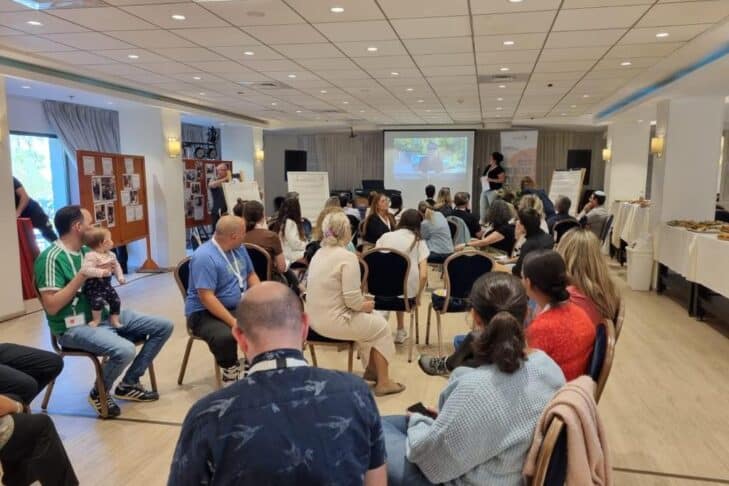On Oct. 7, while Eyal Tarchitzky was visiting family up north, his partner, Carmi, and their 7-month-old daughter were sheltering in their safe room in Sderot and then fleeing for their lives, even as terrorists roamed the streets.
Both Tarchitzky and Carmi work for Dror Israel, an organization comprising 1,300 educators living in 16 educator communities in the social and geographic periphery, serving 150,000 people annually. Dror Israel is dedicated to creating a shared society in Israel through its youth movement, educational workshops, intentional community projects, and local and national social justice initiatives.
Tarchitzky and Carmi live in the educators’ community in Sderot, with 30 educators who have lived and operated educational programs for and with Sderot residents for over 15 years. This community, which lives right on the border of Gaza, has been under rocket fire for the past 23 years. One of Dror Israel’s goals in the city has been to strengthen the social resilience of Sderot’s residents through education and community building.
Although the terror and trauma of Oct. 7 made it an attack unlike any other, Dror Israel sprang into action. The very next day, the educators created a plan to address countless urgent needs. With the help of a $100,000 grant from CJP’s Israel Emergency Fund, Dror Israel established and continues to oversee a range of critical emergency response programs throughout Israel in 54 out of 103 communities evacuated from the south and the north with more than 41,000 evacuees participating nationwide.
These include 50 day care and youth activity centers for evacuees from the Gaza strip and the northern border, educational programs in public shelters in southern Israel’s underprivileged neighborhoods, and day care in hospitals to allow medical staff to return to work. Dror Israel has also coordinated youth counselors in bomb shelters, and in-person and online programming and activity kits for children and families sheltering in place. And these temporary schools and programs have evolved into long-term solutions: afternoon educational programs, including youth movement and sports; social clubs for senior citizens; community leadership committees; safe family programming; and more.
The work of rebuilding after trauma
Like so many of the traumatized in the days and months following the attacks, Tarchitzky needed to serve his community while struggling with his own dread about the fate of his loved ones. After a harrowing 48 hours apart, Tarchitzky was reunited with his family. Now living in a hotel doubling as an evacuee center, he continues the work of Dror Israel, rebuilding community and a sense of direction and purpose for those affected by the war.
“Together we are responsible for leading community-building initiatives with other Sderot residents in the nearby evacuee centers,” Tarchitzky says. “Through our shared efforts, Sderot residents and Dror Israel educators have established leadership committees at seven hotels by the Dead Sea. The committees help manage the complicated day-to-day reality in the evacuee centers, help mediate between residents and the municipality and between the residents themselves, help to oversee the fair distribution of donations, and help with the various needs of the evacuees.”
The stories are as inspirational as they are heartbreaking. Tarchitzky recalls a preschool student asking one of the educators: “I don’t have a father now. Can you be my father?” as well as hundreds of despondent teenagers and young adults finding purpose with Dror Israel training in providing educational-emotional first aid for younger students.
“CJP was a lifeline for us to do this tremendous work,” Tarchitzky says. “We are feeling the support and the love, knowing that we have partners here and that you feel our war is your war, that you’re connected to our struggle in Israel.”
Tarchitzky said that he and his partner have no idea when they can return home to Sderot, or if the townspeople will ever feel a sense of security again after what happened, but he said their work has “transformed [them] from people who were traumatized to those who can empower others.”
“The affected communities know they can count on Dror Israel,” Tarchitzky says. “We were there years before the war, and during the emergency phase. We are with them today and will be far into the future. Our commitment to the communities and to restoring the resilience of Israeli society is also what strengthens us in this difficult time.”
Support CJP so we can continue meeting the needs of the Jewish community in Greater Boston and abroad.


